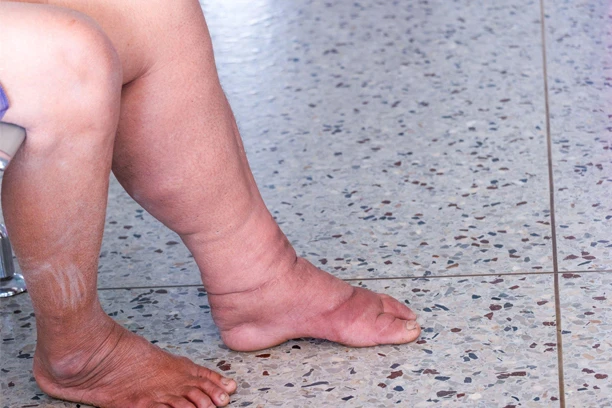Elephantiasis, also known as lymphatic filariasis, is a very uncommon disease that is spread by mosquitoes. The common name is often used since it can make your arms and legs swell and become much larger than they should. Both your breasts and your sex organs may expand. It’s possible for the injured skin to become thicker and harder until it resembles elephant skin. It happens more often in tropical or subtropical areas. If you experience swelling and discomfort, there are treatments and medications that can help.
Causes of Elephantiasis
Normally, elephantiasis is contracted by being bitten by a large number of mosquitos over a long period of time in a country where certain types of roundworms are known to exist.
When you are bitten by mosquitoes carrying roundworm larvae, the infection begins. The little larvae grow and survive in your circulatory system. They mature in your lymphatic system. They may stay there for many years and cause severe lymphatic system damage. This is what causes oedema.
Symptoms of Elephantiasis
Elephantiasis could go undetected until you start experiencing swelling. There is a pain in the swelling location, and those body parts start to seem lumpy and bulky with rigid, tight skin. You might also feel unwell overall, have a temperature, and have chills.
Diagnosis
A physical examination by your doctor will allow them to determine if you have elephantiasis. They will inquire about your medical history and whether you have visited any regions where elephantiasis is more likely to occur.
Additionally, blood tests will be performed to check for roundworms in your bloodstream. Because these parasites are most active at night, these tests must be performed then.
Treatment
Medication can be used to treat elephantiasis. Your doctor might prescribe you one called diethylcarbamazine (DEC). It will be given out once every year. As a result, the tiny worms in your bloodstream will perish.
A different approach to treating elephantiasis uses DEC in combination with the medication ivermectin. The results over the long term have been better with the combination, which is also taken once a year.
You can take a number of actions by yourself to reduce the signs and symptoms of elephantiasis:
- Every day, wash and dry the swollen regions.
- Apply moisturisers.
- Check for cuts and treat any painful regions with a prescription cream.
- Get some exercise, preferably by walking.
- When sitting or lying down, keep your arms and legs elevated if they are swollen.
You might also be able to tightly wrap the injured areas to prevent them from getting worse, but you should first speak with your doctor about this. To relieve pressure in highly enlarged places, such as the scrotum, surgery may occasionally be required.
Living With Elephantiasis
Elephantiasis may render a person helpless. If the affected body parts are occasionally difficult to move, working could be difficult. Even inside your own home, moving around can be difficult.
You can also worry about how others will see your condition. This could lead to depression and anxiety. If you have elephantiasis, ask your doctor for information about support groups. You can also look for resources online that might be helpful.


One Comment
Pingback: Elephantiasis: Causes, Symptoms, Diagnosis, and Treatment – Sujata Birla Hospital